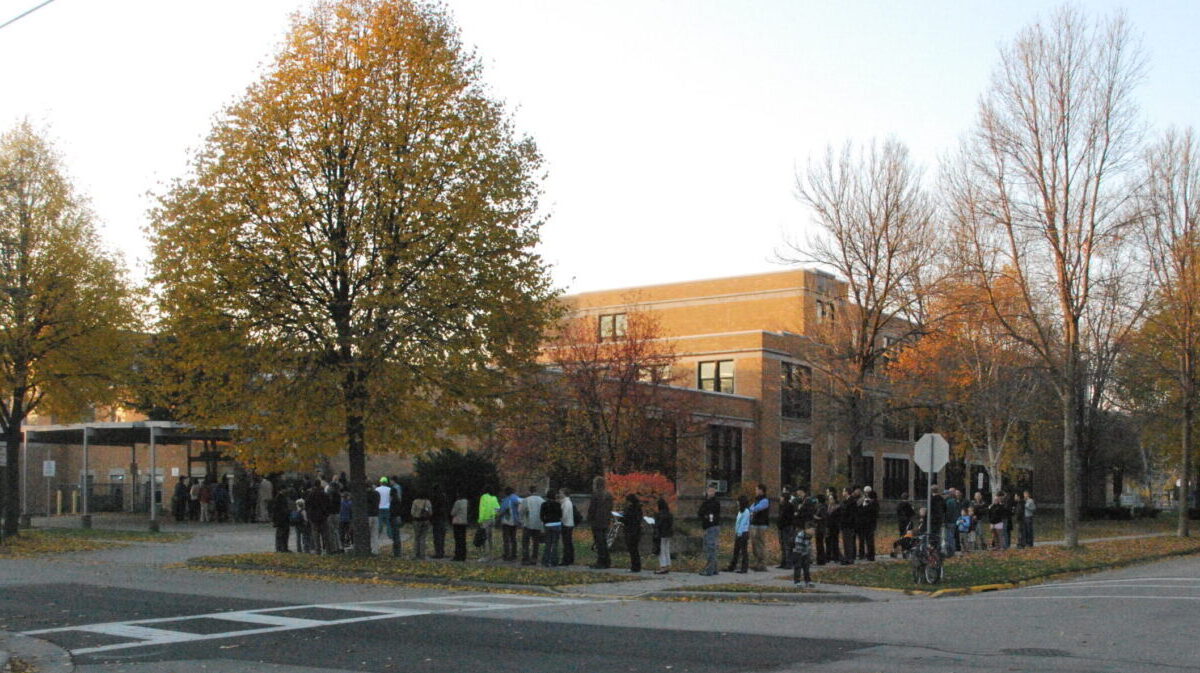Unfortunately, election officials across the country are not keeping the most basic data to monitor election outcomes. Even when they say they do, the numbers do not come close to matching up.
It was a simple goal: match the number of voters with the number of ballots cast. After the last general election there were concerns that ballots were counted multiple times (so that there could be more ballots cast than voters who voted) and that ballots were destroyed (so that there could be more voters who voted than ballots cast). But, through our examination, we learned that it cannot be determined if these discrepancies exist, because most states and counties simply do not keep timestamped records of who voted as required by law.
The America First Policy Institute made public records requests based on state-specific laws for the top 100 most-populated counties in the traditional 14 swing states that typically determine presidential elections. Ninety-four of the 100 counties did not keep records of who voted in the 2020 election, and only two state-wide election officers had the records preserved. Equally disturbing, even in the six counties that did keep records, there was on average a 2.89 percent discrepancy between the number of people voting and the number of ballots cast.
In Miami-Dade, Florida, the discrepancy was about 1.6 percent — a difference of 16,617 votes. Ninety-two percent of the precincts had more recorded ballots cast than voters (for a total of 15,854), and the other 8 percent had more voters than ballots cast (763). Since 12 percent of precincts were missing records, we didn’t include those. That’s a discrepancy that can very well swing elections. For example, in 2018, Republican Rick Scott won Florida’s U.S. Senate seat by 10,033 votes.
Cobb County, Georgia, had a massive discrepancy of 34,893 votes, or 8.8 percent. All but one of the precincts had more ballots cast than voters. The gap was more than two and half times the 13,471 votes Republican David Perdue fell short of winning in Georgia’s first round Senate race in November 2020. Sen. Jon Ossoff then won the run-off the following January.
Bad Record-Keeping
The Federal Civil Rights Act of 1960 requires that “all records and papers… relating to any… act requisite to voting in such election [for federal office]” be kept for 22 months. But, within days after an election, we found that county election officials began updating their original digital voter list for when people move or die. Incredibly, they saved over the original computer file and did not retain a separate copy of the original file, thus making it impossible to match up the data.
This could be sloppiness, or it could point to a need to educate election officials regarding the requirements under the law. What we know is that data storage is trivially inexpensive, and it would be easy to save a file time stamped on election day.
Montana as a Bad Example
Missoula, Montana’s entirely mail-in election shows why record-keeping is crucial. A January 4, 2021, recount of the 2020 election found 4,592 fewer envelopes than the County Election Office’s tally of 72,491 votes. That is a 6.33 percent difference in votes counted. A second March 28, 2022, recount found only 71 fewer envelopes than votes. During that recount, two more boxes of envelopes were discovered. Questions were raised about whether the two missing boxes were accidentally mislaid or fraud was committed. Again, the lack of good records and transparency builds mistrust.
But it should be easy to alleviate people’s concerns about what happened. We should be able to simply watch the video of the envelope opening on election night and count the number of opened envelopes. Indeed, that is precisely why election officials make these videos. But there is a big problem. Missoula County erased the video shortly after the election.
New Effort to Preserve Records
After reviewing our findings regarding state and local officials not following the Civil Rights Act of 1960, Ohio Secretary of State Frank LaRose of Ohio is now spearheading a national effort with the support of Secretary of State Mac Warner of West Virginia to ensure the preservation of election day files going forward. They are calling for states to pass legislation requiring the maintenance of digital, publicly accessible voter records.
Something needs to be done. Fifty percent of likely U.S. voters think it is likely that “widespread cheating will affect the outcome of this fall’s congressional elections,” including 35 percent of Democrats and 70 percent of Republicans.
If we can address and enforce the Civil Rights Act of 1960’s data retention requirements, we will be able to help restore confidence in our system. Americans could see a clear picture of who voted (not how they voted) in the general election, and any discrepancy could quickly and easily be addressed or investigated. Doing so will ensure it is easy to vote in America but harder to cheat.








